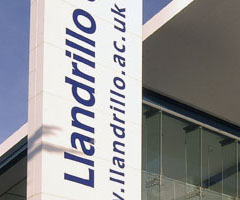Welsh Information Literacy project – Reflections on the Hwb
Posted by LibeRaCe on April 17, 2012
The 29th of March was a very significant day for the Welsh Information Literacy project – being mentioned specifically in the Digital Classroom task and finish group report , as one of the core features of success for supporting the recommendations of change to drive forward the digital learning agenda in Wales. It is testimony to the success of the project team in Phase I and II to have the Information Literacy framework highlighted again in such a defining report, but it also has the new project team thinking about how we can positively contribute to this process. This blog post is very much a reflective piece concerning this question.
The scale of change as detailed in the Digital Classroom report is extensive – for those of you who haven’t had the chance to read it yet, the review sought to answer the question posed by Leighton Andrews in 2011 – ‘Which digital classroom delivery aspects should be adopted to transform learning and teaching for those aged 3-19’? The report concentrates on two main themes – that of supporting the learners and teachers in developing skills/sharing knowledge and also of creating a dynamic virtual learning cooperative of best practice learning and teaching resources. These themes would be supported and guided by a new public body called ‘Hwb’ and a network of e-coordinators, Learning Technologists and teacher champions. Learners and teachers would have access to a life long learning portfolio and resource dashboard that would grow and adapt through their learning journey. The online resource space suggested gives the impression of an amalgam of current activities in the JISC Regional Support Centres, National Grid for Learning Cymru, National Library public collections and local VLE systems – but utilising the best features of them all.
The WILP project team can contribute to these goals in a number of ways – not only through advocacy activities to introduce and promote the importance of IL in schools, but also by contributing to the learning resources needed to help teachers embed IL within the curriculum. Providing practical support at PGCE and training level will also be vital to the successful adoption of new digital learning strategies. We hope that the professional experience of the Phase III team in providing support to teacher trainers in their alternate roles within Grwp Llandrillo Menai means we are well placed to support this outcome.
This striving to improve practitioner skills also has resonance with the Welsh Public Library standards, as highlighted by Libraries Inspire Framework. Here too the Welsh Information Literacy project is specifically mentioned (section 4b!) as being crucial to public libraries being able to support their users. Sections 1e (health & wellbeing), 2h (staff toolkits), 3b (improve use of technology) and 4d (adult, community and multigenerational learning) can also all be positively influenced by the project aims. It is section 5 – Investing in people where the objectives of the WILP, specifically the Agored Cyrmu unit development, is complimented by the practical experience of the Phase III team. This is most notable through direct staff involvement in the delivery of Library qualifications such as the ICTL and Foundation degree. Having several years experience of supporting public librarians and front line information professionals throughout Wales gives the project team a unique insight into current developments of libraries in Wales and the motivations, concerns and aspirations of it’s staff. The project officers involvement in the creation and delivery of course content in relation to digital technologies to support learning and collaboration also underpins the team’s understanding of the ‘digital competencies’ highlighted in the Digital Classroom review. It also gives us the opportunity to reflect on many of the cross cutting themes highlighted in the Delivering a Digital Wales framework. Likewise, the involvement of project team members in JISC and CyMAL activities to facilitate the development of communities of practice and peer support networks within HE, FE and Public Library groups brings an awareness of the importance of collaboration and professional networks in supporting planning, advocacy and new skill development.
It is very important for us that the aims and objectives of project Phase III are informed by these cross-sectoral strategic development plans in Wales and that delivered project outcomes provide practical support to the Information Literacy agenda. This approach, in addition to the guidance provided by the established project steering group and the professional experience of the team members, will give us the best possible start to Phase III. Project team members will be contacting stakeholders across Local Authorities – schools and public libraries – to develop the central themes as highlighted in our first Welcome post.
If you would like to get involved or get in touch with the project team, please contact wilp@llandrillo.ac.uk or follow us on Twitter @welsh_info_lit !





Leave a comment